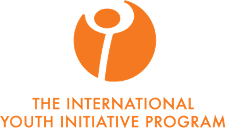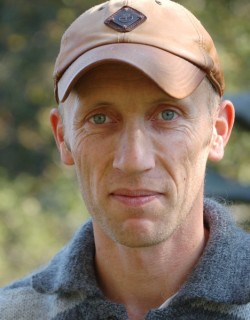Dear friends,
I wrote the text below in the spring of this year, 2014, at a time when the continuation of the program and its organization where wavering on the edge of existence. I felt called to share my view on some of the purpose and value of this initiative, and to stand for these to stay available for young people today and in the future.
YIP made it through these turbulent circumstances and today the program and organization are in a very different position and situation, nonetheless the challenge I try to describe in this text, is still current and ongoing. It is therefore why I would like to share it with you.
Free education & educational freedom
The International Youth Initiative Program (YIP) will only be able to sustain itself through the support of people and organizations sharing its purpose and seeing the value of a free education; free in the sense of financial independence and without limiting factors in form of demanded outcomes and results other than self-imposed.
To date, YIP has remained independent. Next to the privilege and freedom resulting from this, it also has meant that the outcomes are highly individual and hard to quantify. Furthermore, it has often meant financial hardship for those carrying the program.
I see a link between the financial hardship and the difficulty in perceiving the outcomes. The struggle to be financially successful might have to do with a lack of clarity around the outcomes of the program and the recognition of value thereof. As it is hard to perceive these values outside of the direct experience of the program, I believe that those able to provide the means to sustain it might not have been able to recognize and support it.
The purpose of my writing is therefore to elaborate on the value I see in YIP and the aims and outcomes it promotes. And to call on those that see benefit in the purpose and the free educational platform, as provided by this program.
Social entrepreneur by default
Understanding the world as one living, interconnected whole in which everything influences everything is, in my perception, a consciousness vital for healthy living today, and the prerequisite for any real form of social entrepreneurship. If in addition you understand and perceive that everything has a form of life, conscience or ‘beingness’ you become not only inseparable and in relationship, but even responsible for its wellbeing. Responsible at least in as far as you understand your role in that collective. The level at which that responsibility can be given conscious and willing expression in actions and initiatives, depends on the level and complexity of the insight of the one having the understanding.
The core of the free educational space YIP seeks to provide, lies in exploring this integral understanding and finding ways to act in accordance with it. It circles the questions around freedom & responsibility and the individual & the collective.
In the realm of human relations, this could translate into the question often brought to YIP by Orland Bishop: ‘how do I have to be in order for you to be free?’
However, if you assign beingness to all other forms of life, the ‘you’ in the question above, becomes innumerably extended.
By extending the ‘you’, the word responsibility is replaceable by the word relationship, as you make your own wellbeing depend on the wellbeing of the other and vise versa, thereby staying in relation. To do justice to that intention would require understanding both yourself and the other, in order not to compromise either in their ‘freedom.’
Any action respectful of this extended ‘you’, is social by nature.
Given this integrated worldview, any form of self-interest, be it by people, social groups, nations etc., only makes sense if it enables them/it to serve the collective and if it is performed in ways that do not infringe on others abilities to do the same. Nothing can be self-serving only.
What is referred to as freedom in the case of humans, I believe to be better described by ‘sovereign’ for other organisms and ecosystems.
Applying ‘how do I have to be in order for you to be free?’ to a plant for instance, would lead to ensuring it to be able to be kind-specific (sovereign), in order for it to fulfill it’s service for the collective it is placed in.
If therefore you were to apply this intention to agriculture, you would almost inevitably end up with the forms attempted by biodynamics, permaculture and other regenerative forms of agriculture as these seek to understand the kind-specific needs (beingness) of plants and animals and arrange them in such a way that both the ‘individual’ (plant/animal) and the collective (ecosystem) benefit.
YIP has been using the term ‘Social Entrepreneur’ in its description and aim. The way it is used in YIP would include the above-described agriculture as a social entrepreneurial activity and the farmer as social entrepreneur.
The term as used by YIP does not describe a limited group or profession, but rather describes people basing their actions on this extended or shifted paradigm, which I believe makes them social entrepreneurs by default, no matter where or in what form they engage in society.
For my part, YIP was never intended to be a program with the purpose of producing social entrepreneurs as defined by the prevalent disintegrated societal definition.
At the core, it is about being human and about what our task as humans is in this intricate network of physical, social-emotional and spiritual existence called life.
It is an attempt to allow young people to explore this paradigm shift and with it face and develop themselves and society. The contributors, most of whom are themselves seeking to base their work on this paradigm, inspire and encourage participants to take initiative towards becoming more fully themselves and based on this find their service to society.
The paradigm shift might be described as a rite of passage or initiation. Except that the integrated worldview resulting from it is not the purpose or aim of the process, but only a half-way stage.
However hard reaching this stage might be, I perceive it to be only the prerequisite for the ‘real work’ to begin. The real work being, to apply what you already understand into your everyday actions and initiatives.
Those people, acting based on the integrated paradigm and in respect to its social law as expressed in the question ‘how do I have to be in order for you to be free’ out of an understanding of our interconnected social fabric, I call social entrepreneurs. Their act of free will to step into their authenticity, paired with their responsibility to the collective, I call initiative.
The Program
YIP’s current setting in rural Ytterjärna and its duration of 9 months makes that the ‘paradigm shift’ is the main outcome, not the actions and initiatives that could follow it once reached.
This leaves the participants with a clear inner conviction of its value, but struggling to validate this through any outer means of achievement they can show this through.
When asked, most alumni speak of YIP as an incredibly positive, life changing experience and of the fact that they have found a new relationship to themselves and the world around them, but they struggle justifying their experience through any career profile or social entrepreneurial outcomes resulting from their year spend at YIP.
The fact that YIP has been predominantly successful in providing the described paradigm shift or the rites of passage for young people rather than the projects, actions and initiatives based on such understanding, should not lead to the belief that this makes the program any less relevant. If anything, it calls for a second stage to the program, which focuses on the application and integration of the now understood.
With this writing, I would like to encourage both the alumni of YIP as well as those who have supported the project and would like to do so in the future, to see the importance of what the program provides, namely the prerequisite to become a social entrepreneur in the integral sense I try to describe.
Even if YIP does not always result in immediate, measurable numbers of social entrepreneurial initiatives, it does result in social entrepreneurs, irrelevant of where and in what capacity these engage in society.
It might take courage to defend the paradigm as I sketch here, in the face of societal trends that tend to deny any beingness, connectedness and relations and reduces everything to ‘things’. To summon up that courage, I believe it requires clarity of purpose.
It has to make sense first to yourself, before you can make sense of it to others.
My wish is that this writing might contribute to that clarity.
I hope my writing resonates with those having experienced YIP and that it may encourage a better understanding and framing of the experience. Furthermore, I hope it can inspire people to see the value in this type and form of education and invite the support needed to sustain it.
Kind greetings,
Reinoud Meijer

